![]()
Sun, Oct 24, 2010 | The Meir Amit Intelligence and Terrorism Information Center
Iran Sets Conditions Ahead of Resumption of Talks With the West
President Ahmadinejad stated this week that Iran is willing to resume talks on its nuclear program with the G5+1 (United States, Britain, France, Russia, China, and Germany) if they are based on “dignity and justice”. That was the president’s reply to an announcement made by EU Foreign Minister Catherine Ashton according to which the EU had invited Iran for a three-day round of talks on its nuclear program in mid-November.
In a speech given by the president during a visit he held this week to Ardebil Province in northwest Iran, Ahmadinejad listed four conditions for resuming talks with the West: the West must clarify its position on the international commitments to help Iran’s nuclear program in accordance with the Non-Proliferation Treaty (NPT); clarify whether it has friendly or hostile intentions in negotiating with Iran; to say whether it intends to act in accordance with reason and law or follow a policy based on threats; and clarify its position regarding the nuclear weapons held by Israel (ISNA, October 17).
The government daily Iran claimed this week that talks with the West must be held out of a position recognizing Iran’s power. An editorial published by the daily said that the West’s willingness to resume the talks with Iran stems from its recognition of Iran’s increasing power. Iran successfully negotiated the political crisis after the presidential election, made significant achievements on the international scene, and became one of the most important and influential powers on the regional scene, including in Iraq, Afghanistan, Palestine, and Lebanon. Latin America, Africa, the Caucasus, Asia, and even Europe and America currently recognize Iran’s soft power in the world.
Following the failure of pressure and sanctions, the West has no choice but to come back to the negotiating table. The daily noted that Iran has already expressed its willingness to hold talks on its nuclear program, claiming, however, that the negotiation plan offered by Foreign Minister Ashton was unacceptable for a number of reasons. First, the EU has yet to address the conditions set forth by President Ahmadinejad for resuming the talks. Second, Iran has already made it clear that it is willing to discuss the technical and legal aspects of its nuclear activity only with the IAEA. Third, the talks should be held in Turkey instead of Vienna, and must not be limited to three days, as suggested by Ashton. According to the daily, talks simply for the sake of talks are unacceptable. Western countries must learn a lesson from the failure of their talks with Iran so far and understand that they must treat Iran with respect, acknowledge its unique position, and hold talks with the purpose of achieving cooperation with it (Iran, October 17).
The website Iranian Diplomacy, however, issued a warning this week that as more time goes by, the West increasingly finds talks with Iran to be futile. A commentary article published on the website claims that there have been more and more voices in the West calling to adopt a more forceful policy towards Iran, or even to go back to George Bush’s strategy of “regime change” in Iran by increasing support for the reformist opposition. If that trend continues and the American administration comes to the conclusion that talks will not lead to an understanding with Iran, the position of those who support a military offensive against Iran will become stronger. The website criticized the Foreign Ministry for being unable to properly communicate Iran’s foreign policy, based on self-defense rather than offensive intentions. The failure of Iranian diplomacy fuelled fears about Iran’s military intentions and its supposedly imperialistic aspirations. It even prompted the United States to supply advanced weaponry to Arab countries, which may at some point be used against Iran. The internal debate that has been taking place in Iran in the past several months about the place of “Islamic thought” as opposed to “Iranian thought” in the management of Iran’s policy also increases Western and Arab concerns over its intentions, the website says (Diplomasi-ye Irani, October 18).
Meanwhile, the conservative news agency Fars has seriously questioned the ability of EU Foreign Minister Catherine Ashton to direct the negotiations with Iran. A commentary article published by the news agency this week claims that unlike her predecessor, Javier Solana, she does not have enough knowledge and experience to direct the negotiations, and is not well-versed in issues pertaining to the talks with Iran. According to the agency, even her colleagues in the West and journalists in Europe criticize her weakness in decision-making and her inability to solve foreign policy-related problems facing the EU (Fars, October 18).



 RSS
RSS

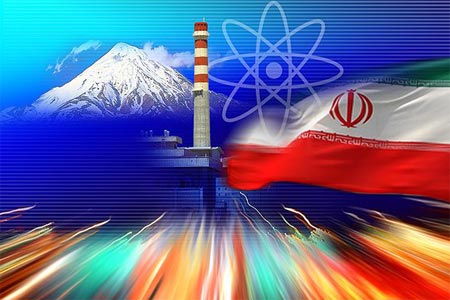

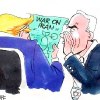
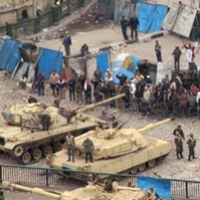
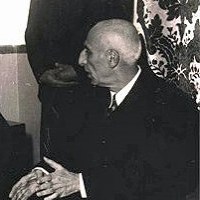
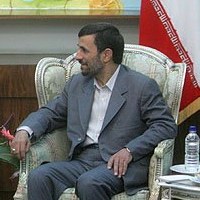




Iran Sets Conditions Ahead of Resumption of Talks With the West | #Iran #G5+1 #nuclear http://j.mp/9XqoBP
RT @CrethiPlethi: Iran Sets Conditions Ahead of Resumption of Talks With the West | #Iran #G5+1 #nuclear http://j.mp/9XqoBP